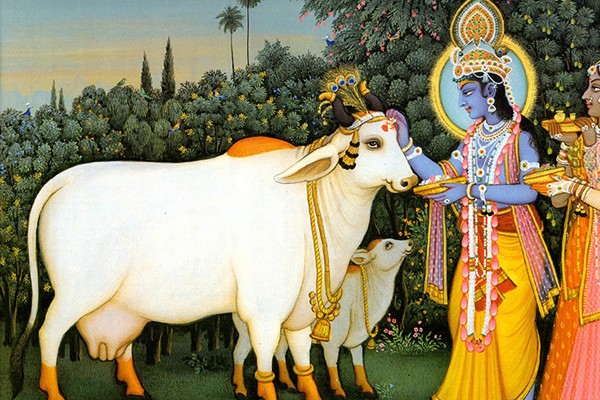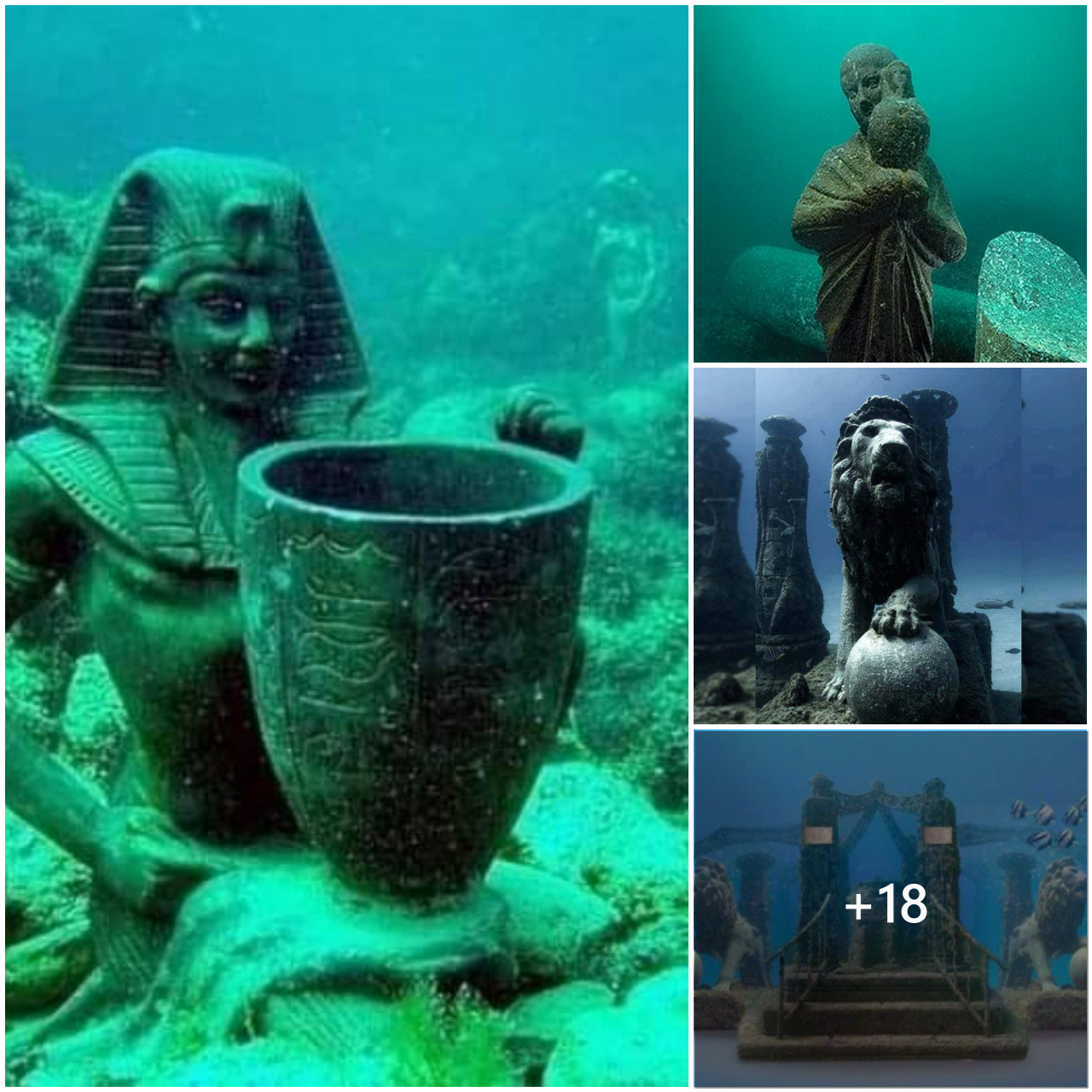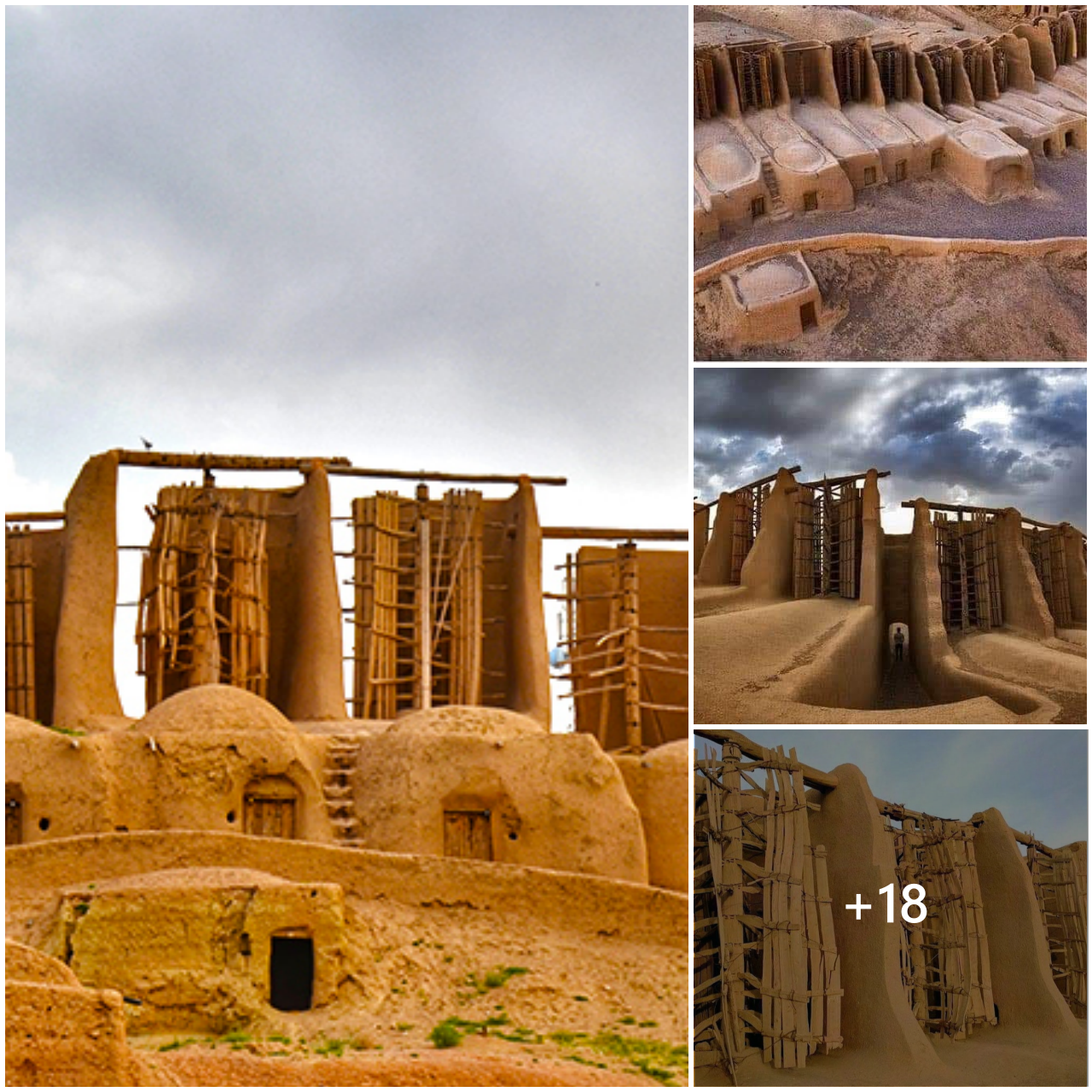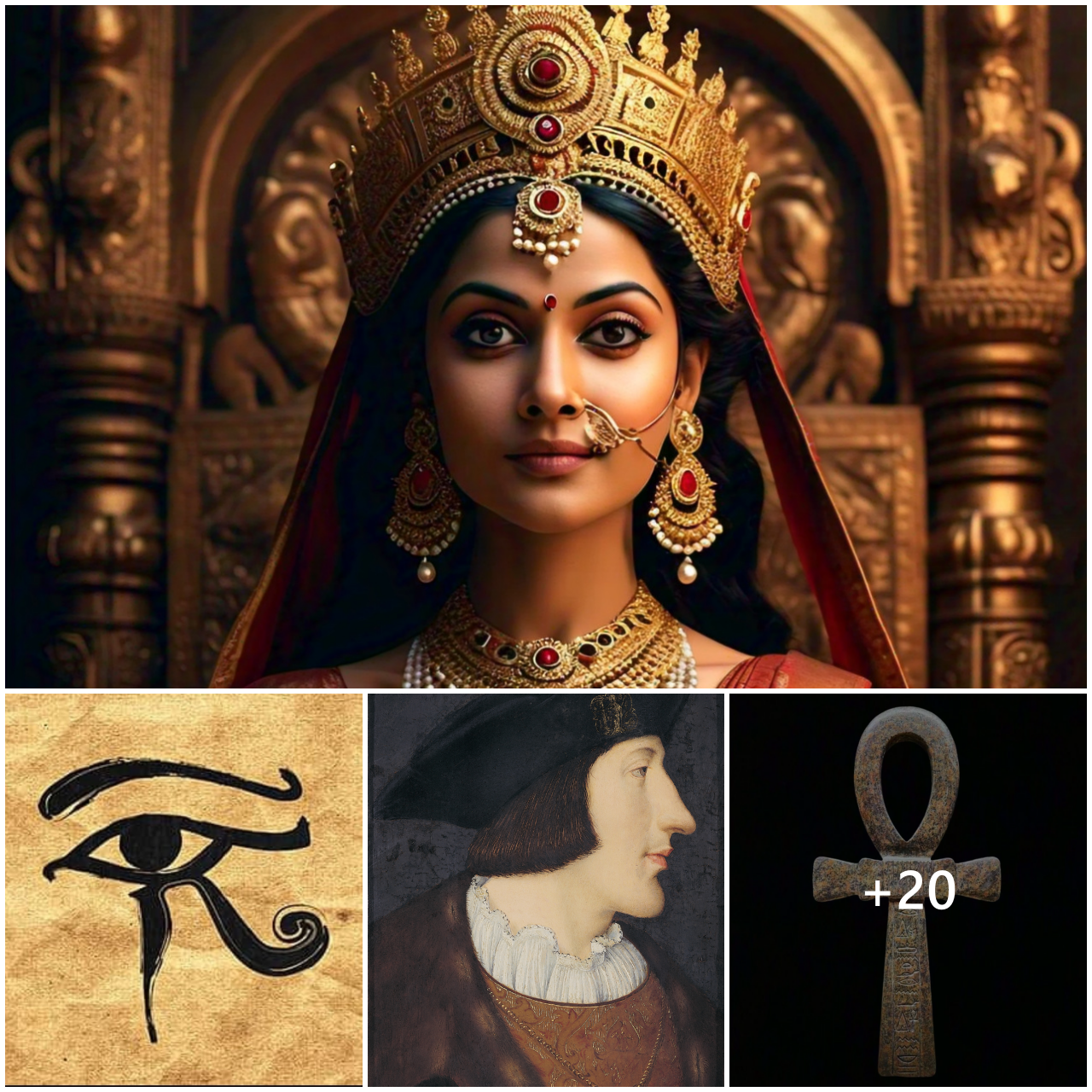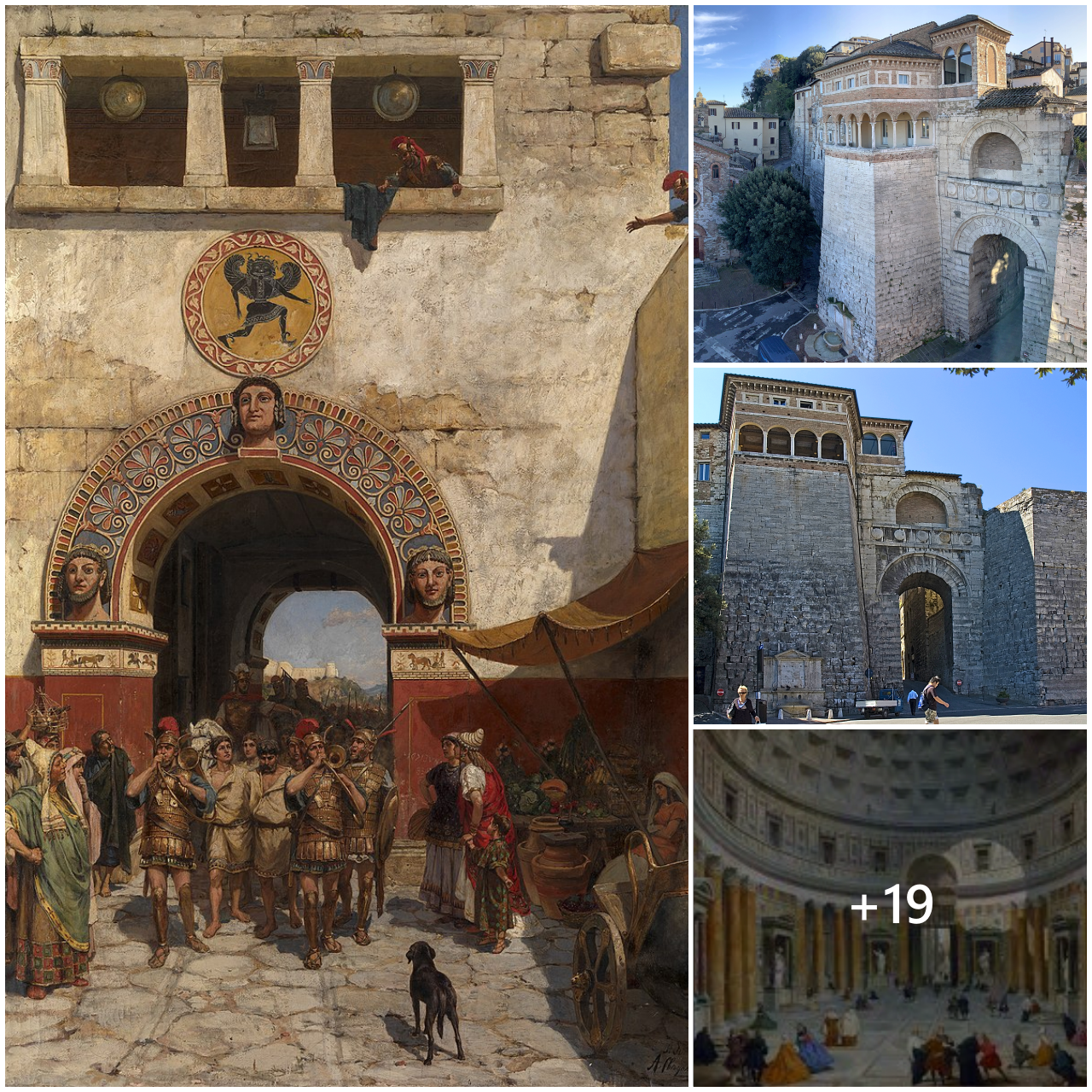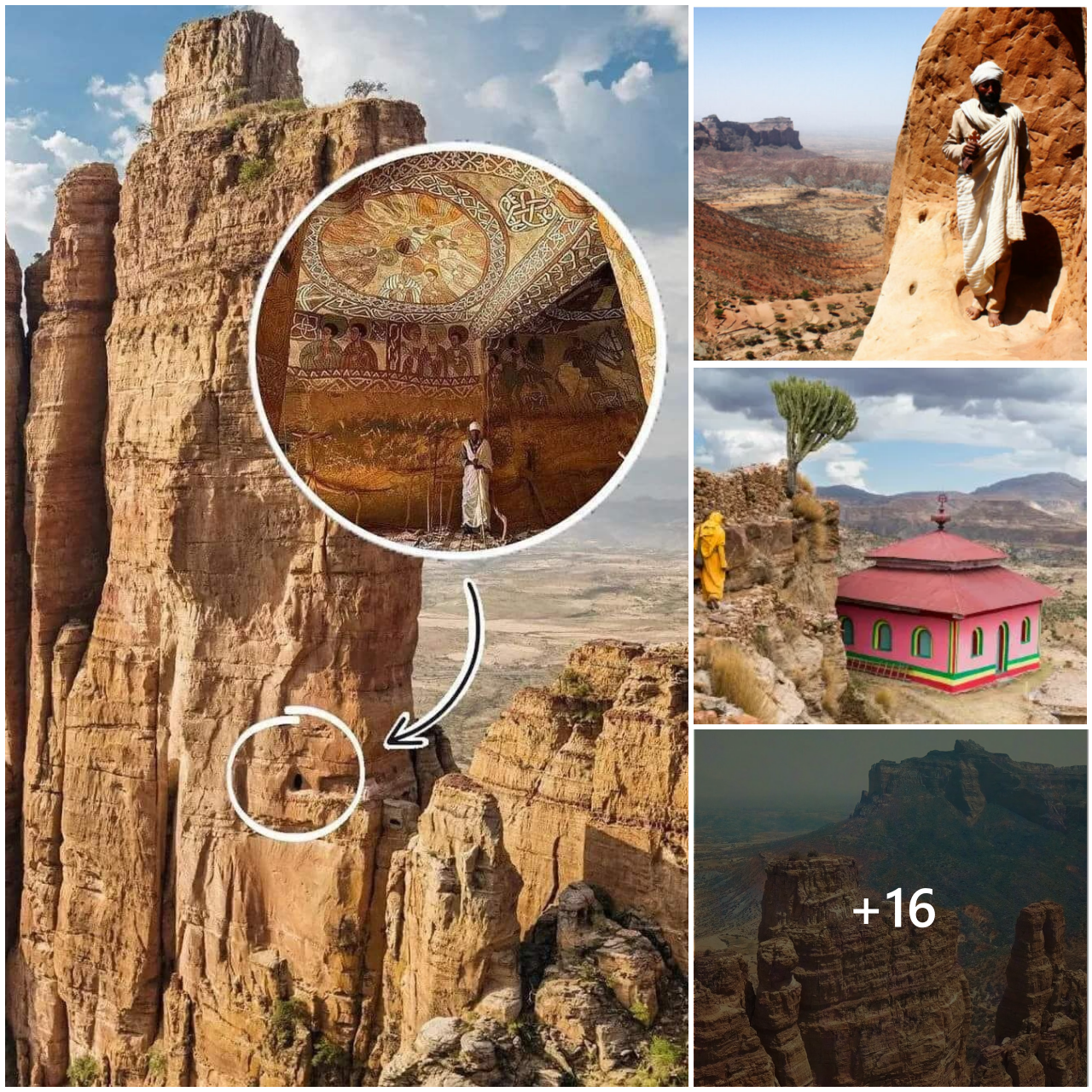Cow gods in Indian culture are worshiped as gods, especially by those who follow Hinduism. Therefore, Indians abstain from eating beef and many people are threatened and beaten for blasphemy with cows. You can even go to jail if you eat beef here.
India is a religious country and one of the countries with the most temples in the world. The cow god in Indian culture is worshiped as a god, because the cow is the animal that Shiva rides, the supreme god of Hinduism. Therefore, it is easy to understand why Indians worship cows so much. Just one wrong action with this animal, you will immediately “bring disaster to yourself”!
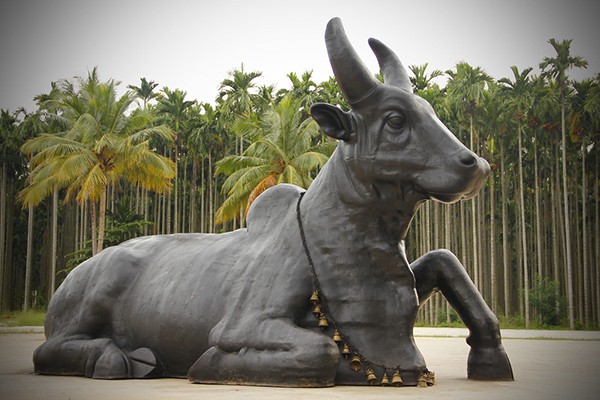 Cow god – god worshiped in India
Cow god – god worshiped in India
1. The cow in the spiritual life of Indians
In the Vedas, cows symbolize abundance and fertility. Indians view the cow as a sacred deity, symbolizing the earth and sky, and all parts of the cow have a certain religious meaning.
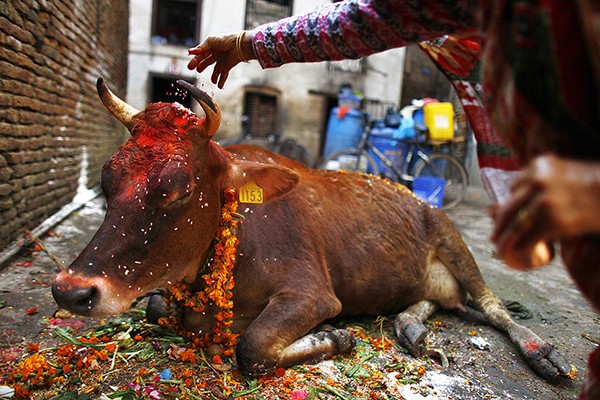
Cows represent the earth and sky
The four legs represent the four Vedas, the breasts represent the four Purusharthas (dharma: law, artha: wealth, kama: desire, moksha: liberation). The cow’s horns represent the gods, the face represents the sun and moon and the shoulders represent the fire god Agni.
The cow has enhanced spiritual value and is praised with good and respectful words. At the same time, the Vedas also provide very strict regulations on slaughtering, buying, selling or eating beef.
2. How much is the cow god revered in Indian culture?
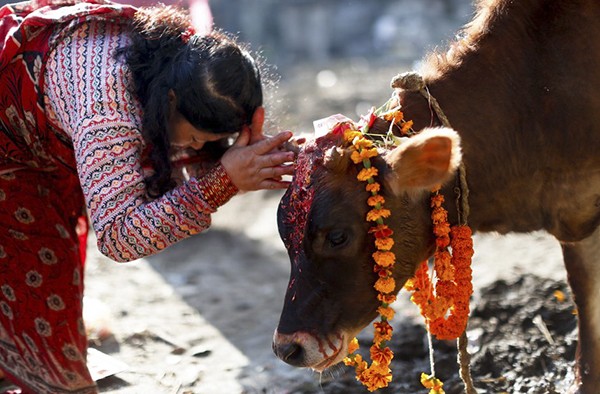
Indians often go to the cow god when they want to ask for divine blessings
Indians never eat beef, they only use cow’s milk raised from farms. Even the cows are free to roam the streets, doing whatever they want or sleeping wherever they want.
Indians often compare the eyes of beautiful girls to the eyes of a cow. They often go to the cow god when they want to ask for blessings by holding the cow’s tail and letting the cow touch its head. Just feeding cows is a way to help you please the gods and make your wishes come true.
In India, there are many temples worshiping gods (Snake god, Monkey god, Elephant god, Cow god) across the country. Everywhere you can find a temple, whether it is on the street or in some corner.
In addition, Hindu charity organizations have expanded cow protection centers in many cities in India. From there, they can bring wandering cows to the center for care.
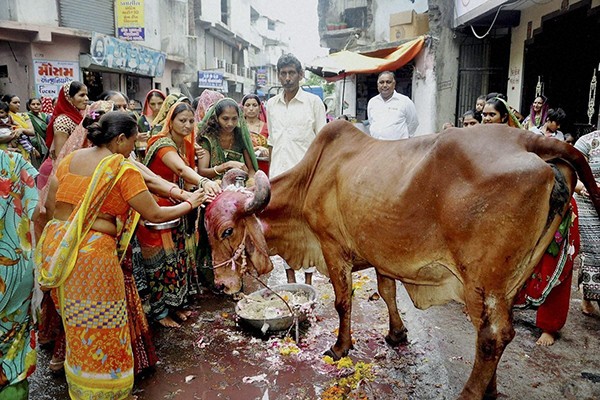
Cows freely roam the streets in India
In 1995, the Rajasthan Bovine Animal Act was enacted, prohibiting people from owning, buying, selling or transporting beef. Since then, beef has become a “nationally prohibited” commodity, and those who violate this law can be sentenced to 2 years in prison and fined up to 10,000 rupees (about 150 USD).
It is known that there is also an annual festival called “Pidakala war” with a strange activity where people throw cow dung at each other. This is to recreate the quarrel before marriage in Hindu mythology with the belief that it will bring good health, good weather, etc. Every year, people are injured while participating, but the villagers believe that the The wound will heal within 3 days.
If you set foot in this country, you should learn carefully about the cow god in Indian culture . You will learn what to note when choosing dishes, as well as what you should and shouldn’t do to travel safely here.
3. The story “accidentally” insulted the cow god and the scary consequences
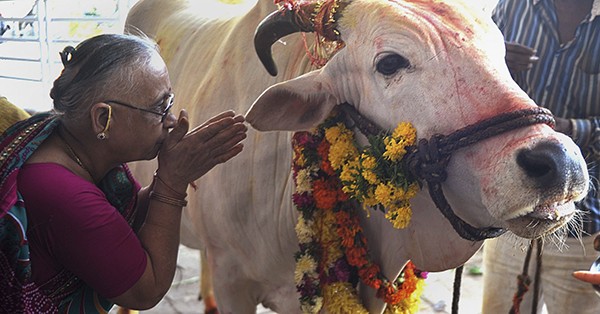
Indians worship the cow god very much
Listening to stories about the Indian worship of the cow god passed down by the people, you will understand how serious the consequences will be if someone insults the cow god. It can be mentioned that an Indian congressman beat a colleague right in a meeting because he had previously ordered beef in a personal meal.
Another story, in 2019, after discovering 3 men slaughtering a cow in the forest, a crowd of about 10-15 people tracked down and attacked these 3 people. As a result, one person died, the remaining two were injured and taken to the hospital.
4. Notes you need to know before traveling to India
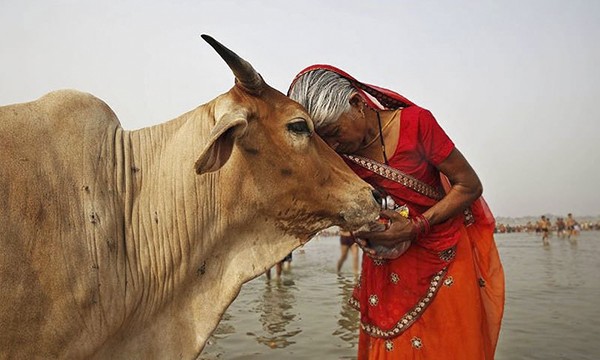
Cows are considered a god and are worshiped at many temples in India
– Absolutely do not order or eat anything made from beef in India
– Do not show blasphemous behavior towards cows wandering on the road such as chasing or beating them, but stay away from them and go to another road.
– Absolutely do not bring any products such as clothes, shoes, or accessories made from cowhide into India.
– Do not bring dry foods made from beef to India.
– You should bring pork products to eat in case you like to eat meat.
Through the above information, we can see how much the cow god is revered in Indian culture . They considered cows as a god and built many temples to worship this animal. Therefore, if you come here, you should learn carefully about the culture to know what you should or should not do, to avoid unnecessary trouble for yourself.
